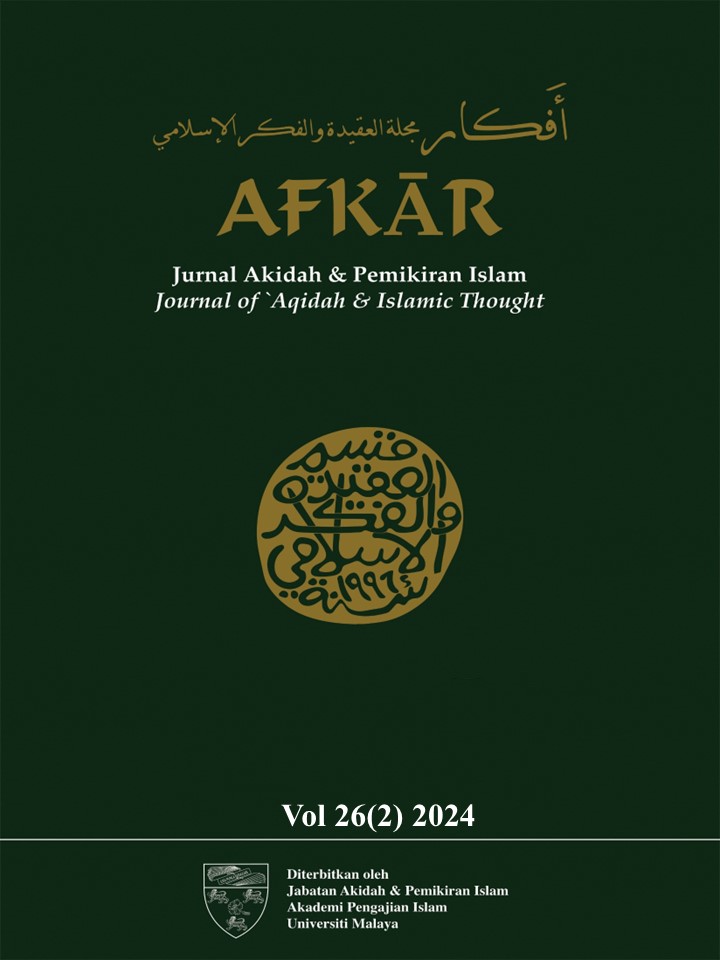The Influence of Sufi-Centric Movements on the Flourishing of Islamic Plurality in the Indian Subcontinent
Main Article Content
Abstract
This article explores the multi-faceted impact of Sufi ideological groups such as Deobandi, Tablighi Jamaat, Darul Uloom Nadwatul Ulama Nadwi, and Barelvi movements on the dissemination of Islam in the Indian subcontinent. It focuses on the educational contributions of Sufi institutions, particularly Khanqahs and Madrasahs, which were pivotal in spreading Islamic knowledge, including theology, literature, arts, and sciences. The study provides a historical overview of Sufism’s evolution in the region and analyses the distinct methods of Islamic propagation used by these four movements. Methodologically, the research employs historical analysis, primary source examination, and socio-cultural investigation to uncover how Sufi scholars facilitated spiritual enlightenment, fostering acceptance of Islam across diverse communities. Findings reveal that while Deobandi and Nadvi groups propagated Islam through madrasas, Tablighi Jamaat utilized mosques and outreach to non-Muslims, and Barelvi groups focused on Khanqahs. The study highlights the Sufi movements’ role in promoting communal harmony, religious tolerance, and peaceful coexistence. The research offers original insights into the socio-cultural influence of Sufi teachings in shaping Islam’s spread and calls for further investigation into their contemporary impact on interfaith relations in the region. Recommendations include strengthening Sufi educational institutions to foster peace and tolerance.
Downloads
Article Details

This work is licensed under a Creative Commons Attribution-NonCommercial 4.0 International License.
References
Adravi, Nizamuddin Asir. Tazkirah MaSahir Hind: Karwane Rafta. Deoband: Darul Muallifeen, 2016.
Ahmad, Mushtaq. Tahrike Deoband. Dhaka: Shantidhara Publications, 1998.
Ali, Jan. “Islamic Revivalism: The Case of the Tablighi Jamaat.” Journal of Muslim Minority Affairs 23(1) (2003): 173-181.
Birzadeh, Abdulhalik. Al-Shayḫ Muhammed Ilyas ed-Dihlevi. Cairo: n.p., 1990.
Bruinessen, Martin van & Stefano Allievi. Producing Islamic Knowledge: Transmission and Dissemination in Western Europe. New York: Routledge, 2011
Bustamam-Ahmad, Kamaruzzaman. “The History of Jama’ah Tabligh in Southeast Asia: The Role of Islamic Sufism in Islamic Revival.” Al-Jami’ah: Journal of Islamic Studies 46(2) (2008): 353-400.
Cebecioglu, Ethem. “Guney Asya’da Islam’in Yayilmasında Sufilerin Rolu (The Role of Sufis in the Spread of Islam in South Asia).” Journal of the Faculty of Divinity of Ankara University 33(1) (1994): 158-178.
Chowdury, Saeyd Rashed Hasan & Vahit Goktas. “A Critical Analysis of Imam Rabbani Ahmad Sirhindi’s Doctrines on Sufism.” Teosofi: Jurnal Tasawuf dan Pemikiran Islam 11(1) (2021): 93-121.
Chowdury, Saeyd Rashed Hasan & Vahit Goktas. Banglades’te Islam ve Tasavvuf. Ankara: Ankara Kalem Nesriyat, 2023.
Chowdury, Saeyd Rashed Hasan, Harun Alkan & Murat Ismailoglu. “A Critical Analysis of Shah Waliullah Dehlawi’s Sufi Influences in the Indian Subcontinent.” Sufiyye 15 (2023): 23-62.
Chowdury, Saeyd Rashed Hasan. “Prof. Dr. Hasan Kâmil Yılmaz. An Outline of Sufism and Sufi Orders (Ana Hatlarıyla Tasavvuf ve Tarîkatlar). Istanbul: Ensar Publication, 2019. 367 p. ISBN: 978-975-6794-30-2.” International Journal of Social, Political and Economic Research 11(2) (2024): 1-10.
Chowdury, Saeyd Rashed Hasan. “Shah Wali Allah al-Dihlawi and the Conclusive Argument from God.” Jurnal Iman dan Spiritualitas 4(3) (2024): 267-270.
Faruqi, Ziya-ul-Hasan. The Deoband School and the Demand for Pakistan. London: Asia Publishing House, 1963.
Goktas, Vahit, Mohammad Mahmudul Hasan, Saeyd Rashed Hasan Chowdury & Murat Ismailoglu. “Spirituality in the Context of Tablighi Cemaat and its Implication on Muslim Society: The Sufi Perspective.” International Journal of Social, Political and Economic Research 9(1) (2022): 49-66.
Goktaş, Vahit & Saeyd Chowdury. “An Evaluation of Mu’in al-Din Chishti’s Sufi Influences in the Indian Subcontinent: The Case of Chishti Tariqa.” Şırnak University Journal of Divinity Faculty 31 (2023): 47-76.
Goktaş, Vahit & Saeyd Chowdury. “Districts of Bangladesh Named After Sufis Manifesting the Great Impact of Sufism on Bengal Civilization: A Qualitative Study.” Journal of Islamic Thought and Civilization 13(1) (2023): 320-337.
Ingram, Brannon D. In Revival from Below: The Deoband Movement and Global Islam, 1st ed. Los Angeles: University of California Press, 2018.
Khan, Ghazanfar Ali. “Nadvat al-Ulama: A Centre of Islamic Learning.” Aligarh: Aligarh Muslim University, 2001.
Lewis, Martin W., “Deobandi Islam vs. Barelvi Islam in South Asia,” Osmanisnin, accessed October 4, 2024. https://osmanisnin.wordpress.com/2021/09/27/deobandi-islam-vs-barelvi-islam-in-south-asia/.
Maheshwari, Anil & Richa Singh. Syncretic Islam: Life and Times of Ahmad Raza Khan Barelvi. UK: Bloomsbury Publishing, 2021.
Mamun, Sukron. “Tablighi Jamaat: An Islamic Revivalist Movement and Radicalism Issues.” Islam Realitas: Journal of Islamic and Social Studies 5(2) (2019): 145-159.
Metcalf, Barbara Daly. Islamic Revival in British India: Deoband, 1860-1900. Princeton: Princeton University Press, 1982.
Nadwi, Syed Muhammad Rabey Hasani. Syed Abul Hasan Ali Nadwi: An Eminent Scholar, Thinker, and Reformer. New Delhi: D. K. Print World Ltd., 2014.
Numani, Mawlana Manzur. Teblig-i Cemaʿat, Cemaʿat-i Islami and Barelvi Hazret. Leknev: n.pb., 1989.
Reetz, Dietrich. “Sufi Spirituality Fires Reformist Zeal: The Tablighi Jama’at in Today’s India and Pakistan.” Archives de Sciences Sociales des Religions 135(3) (2006): 33-51.
Riaz, Ali. Faithful Education: Madrassahs in South Asia. New Brunswick: Rutgers University Press, 2008.
Salam, Ziya Us. Inside the Tablighi Jamaat. New York: Harper Collins, 2020.
Sanyal, Usha. “Generational Changes in the Leadership of the Ahl-e Sunnat Movement in North India During the Twentieth Century.” Modern Asian Studies 32(3) (1998): 635–656.
Siddiqi, Bulbul. Becoming ‘Good Muslim’ The Tablighi Jamaat in the UK and Bangladesh. Singapore: Springer, 2018.
Spevack, Aaron. The Archetypal Aliye Scholar: Law, Theology, and Mysticism in the Synthesis of al-Bajuri. New York: State University of New York Press, 2014.
Yahya, Abul Fatah Muhammad. Deoband Movement: Contribution to Historical Tradition. Dhaka: Maqtabatul Fatah, 1998.
“Barelvi,” Oxford Reference, https://www.oxfordreference.com/display/10.1093/oi/authority.20110803095446664, accessed October 7, 2024.

